- NEW DVD Series – Stone Setting with Bezels
- Tube Set Charm by Kim St. Jean
- Prong Basket Pendant by Kim St. Jean
- NEW DVD Series – Stone Setting with Cold Connections
- New DVD Series – Stone Setting with Wire
- NEW DVD Series: Introduction to Stone Setting by Kim St. Jean
- Featured Tool: Bracelet Bending Plier
- NEW Dvd by Eva Sherman
- Fun, Fast Fold Forming DVD Series
- Double Band Ear Cuff from Alex Simkin
Gem Profile Nov. 2: Aragonite
by Layna Palmer, Wire-Sculpture.com

Aragonite
Aragonite is not just a ghost town in Utah, but a really beautiful Carbonate and the principal member of the Aragonite group which also consists of Calcite. Aragonite is often called Calcite’s "poor relative," when in actuality, they both have the same chemistry (CaCO3), but a different crystal structure. This means that Aragonite is a Polymorph of Calcite with Orthrombic symmetry. Okay, now that I have totally confused you, let me tell you a bit more about the amazing mineral Aragonite.
Aragonite, named after Molina de Aragon in Guadalajara, Spain, was first found in 1797, but not introduced throughout Europe until 1876. It is naturally white or pale yellow in color, but can be banded with darker gold or brown colors. Aragonite can also be found in blue or pink depending on the impurities within the stone when it was created, the temperature and the presence of other minerals.

Batya Morris of Ellenville, New York created this aragonite earring and necklace set in sterling silver, inspired by an earring design by Sally Stevens.
Aragonite can also be found in Spain, France, England, Scotland, Mexico, Morocco, New Mexico, Arizona, Utah, parts of Asia, and the Middle East. It has been called California Onyx, Suisan Marble, and Mexican Onyx when it is dark and highly banded. Aragonite has a hardness of 3.5 – 4 and Pinacoidal (one direction) of fracture or Cleavage. Aragonite is considered to be unstable at normal temperatures and pressures and will eventually convert to Calcite (try 10×108 years, which is definitely "eventually").
The most familiar form of Aragonite in jewelry making comes from pearls, coral, and mother of pearl. Mollusks secrete Aragonite, which is called Nacre, to cover irritants in their shells and creating beautiful pearls in the process. The endoskeleton of coral is made from Aragonite and Mother of Pearl is a layer of Aragonite secreted by the mollusk. Now you’re probably asking yourself how we get different colors of pearls if Aragonite is naturally white or pale yellow (okay, now you’re asking yourself this question). The different colors of pearls are determined by the type of mussel making them, the water temperature, and the nuclei of the pearl. Much of what determines pearl color is the same as what determines Aragonite’s color variation.
In the dentist’s office, the white sand at the bottom of the salt water tank is most likely Aragonite. Biologists have found that the Aragonite sand helps to maintain the tank as near to the actual sea environment as possible for the health of the fish. Aragonite is the primary content of the cave formations of Carlsbad Caverns in New Mexico, and the beautiful white formations of Mammoth Hot Springs in Yellowstone National Park. If you’ve never been to either place, simply going to the hardware store and looking at the travertine tile, which is Aragonite, will give you an idea of the color variation and beauty of Aragonite.
Aragonite is said to increase the energy of prayers, help in meditation and mediate stress. It has also been used to draw out the heat of fevers, reduce inflammation and is said to be beneficial for chronic fatigue. It can also enhance the patience and help with the acceptance of responsibilities, reminding us of our true center and making it a good stone for family, companionship and calm.
Next Friday’s Gem Profile is on topaz. Have you made wire jewelry with Topaz stones before – in orange, blue, or another color of topaz? Send your Topaz pictures to tips@wire-sculpture.com, and they could be featured!
Resources & Recommended Reading
- The Mineral ARAGONITE
- The Mineral aragonite
- Pentecost, Allen. Travertine. ISBN 1402035233.
- Color Variations of Pearls
- Aragonite on Wikipedia
- Aragonite Historical Information
Gem Profile by Layna Palmer
Click to Receive Daily Tips by Email





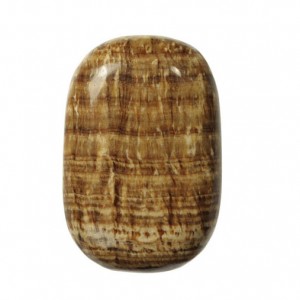
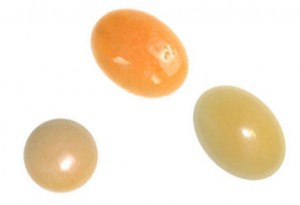


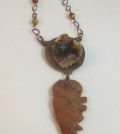
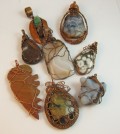

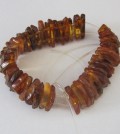

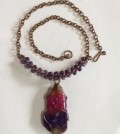
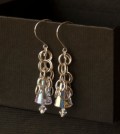
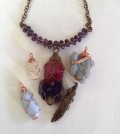
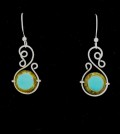
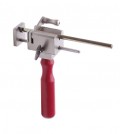
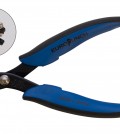
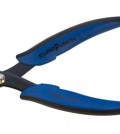

0 comments